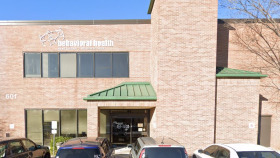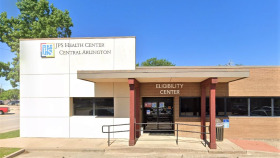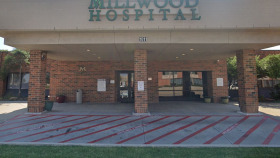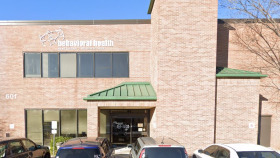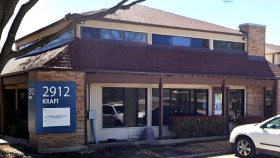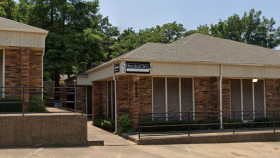Expert Insights
Recently, I read an article about a neuroscience researcher from The University of Texas at Arlington winning a three-year grant from the National Institute on Drug Abuse. Linda Perrotti, who is a psychology professor, is researching the differences in somatic, emotional, and motivational responses between males and females after they stop using morphine. According to the professor, her study is looking to develop data related to the ways females experience drug use, addiction, and recovery. I think this will be a very valuable study, particularly when it comes to figuring out how pregnant women are impacted by addiction.
~ Natalie Baker
Are There Low-Cost and Free Drug Rehab Centers in Arlington?
State-funded rehabs in Arlington can offer a range of services, with some catering to one specific group and others providing a continuum of care services to people of all ages, backgrounds, and levels of addiction. These rehabs are funded by federal and local programs such as Medicare, Medicaid, and Substance Abuse and Mental Health Services Administration (SAMHSA) block grants.
According to SAMHSA, Arlington and the surrounding towns are home to:
To qualify for assistance from these programs, people generally need to be low-income and in need of addiction treatment. Different rehab centers will have their requirements, so call their intake counseling team to determine what type of assistance you might be able to receive towards getting treatment.
Community and faith-based organizations might offer other financial assistance for rehab.
How Does Arlington Compare in Alcohol and Drug Use?
If you or someone you love is struggling with an addiction, there are many drug rehabs in Arlington, Texas and alcohol rehabs in Arlington, Texas, that can help.
From inpatient and outpatient to Christian rehabs and free rehabs, you have countless options for substance abuse treatment.
Despite the large population in the area, few city or county-wide community health surveys have been conducted regarding substance abuse.
However, looking at overdose reports from the Center for Disease Control, we can see that Tarrant County, the seat of Arlington, has seen an increase in drug and alcohol-related overdoses in recent years. Here are some more statistics related to drug and alcohol misuse in Arlington:

There were a total of 1,334 overdoses in Arlington between 2018 and 2020

Accidental drug overdoses nearly doubled between 2018 and 2020

Alcohol-related deaths spiked from 8.9% per 100,000 in 2018 to 10.5% in 2020

Arlington saw 20 fatal overdoses in 2020, another 28 in 2021, and there were 12 in by June of 2022
Methamphetamines cause the biggest drug problem in the state, which is particularly troubling considering the lack of medication-assisted treatment (MAT) available for meth
Alcohol and Drug Laws in Texas
The state of Texas, most like others, has enacted various substance abuse laws to help prevent overdoses and drug abuse and offer solutions to people in need of help with addiction.
Texas Good Samaritan Laws: In addition to Good Samaritan laws that protect people who call for emergency services when they witness a medical emergency from being prosecuted, Texas has two directly related to substance abuse. The Underage Drinking Good Samaritan Law protects you if you’re underage and found drinking or in possession of alcohol when seeking medical assistance if certain circumstances are met.
The Opioid Antagonist Good Samaritan Law offers a level of immunity, if circumstances permit, for those requesting assistance for suspected opiate overdoses.
Treatment Alternative to Incarceration Program (TAIP): The Treatment Alternative to Incarceration Program is designed to help rehabilitate people when they make a mistake while under the influence of substances, without jail time, depending on the circumstances of the crime committed. Depending on your ability to pay for services, you may be found medically indigent, and the state would then cover services. Services in TAIP include:
- Day Treatment Program (DTP)
- Intensive Day Treatment Jail (IDTJ), which is offered within the Tarrant county jail
- Intensive Outpatient Program (IOP)
- Relapse Program
- Cognitive Program
- Substance Abuse Felony Punishment Facility (SAFPF), a long-term residential program
- Substance Abuse Aftercare Unit
The day treatment program is offered for people over the age of 17 without a dual diagnosis or need for detox. This program is based out of the Fort Worth corrections office.
Resources
- Substance Abuse and Mental Health Services Administration. (2022). SAMHSA Behavioral Health Treatment Services Locator.
- Center for Disease Control. (2022). CDC WONDER.
- Tarrant County Public Health. (April, 2019). Data Brief Abuse and Neglect.
- Jane Carlisle Maxwell, Ph.D., Addiction Research Institute Steve Hicks School of Social Work, University of Texas at Austin. (2019). State of Texas Drug Use Patterns and Trends, 2019.
- Texas Department of Health Services. (2018). Overview of Drug Overdose Good Samaritan Laws.



